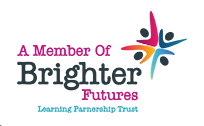Curriculum Intent, Implementation and Impact

Overall Curriculum Intent
At Dunsville Primary School, the pupils are at the centre of what we do. Our curriculum is built on strong pedagogical principles, with every pupil encouraged to meet and achieve their potential.
We believe that a knowledge-based curriculum provides a secure foundation for pupils to transfer knowledge into the long-term memory and equip them with the vocabulary to enable them to take advantage of opportunities, responsibilities and experiences of later life.
The curriculum is mapped for each individual subject. It is a carefully well-sequenced, knowledge-rich curriculum which ensures progression through each phase building on key concepts and providing pupils with opportunities to revisit their learning within the context of their locality and the wider world. In order to provide a breadth of study, the interleaving curriculum allows for the revisiting of knowledge across subjects to ensure deeper knowledge is gained through rich experiences over time.
We work in collaboration with an outstanding Trust in London to provide curriculum content that has been carefully chosen by subject experts. This will provide the foundations for future learning and enable pupils to develop a love of individual subjects.
The aim of our curriculum is to inspire, motivate and ensure all pupils have equal opportunities and access to learning. It is ambitious as we aim for all pupils to achieve excellent outcomes by providing the appropriate levels of challenge and scaffold. We aim to equip pupils with the knowledge and cultural capital they need to succeed in life.
Pupils leave Dunsville Primary School with a sense of belonging to a tightly knit community where they have the confidence, knowledge and skills to make decisions, self-evaluate, make connections and become lifelong learners.

Curriculum Implementation
The curriculum is based on good quality resources. English is taught through quality whole class texts. Reciprocal Reading and Talk for Writing are used to ensure pupils gain the knowledge to become experts in reading and writing which can be transferred as skills across the curriculum.
Maths is taught through a mastery approach, with manipulatives and a concrete, pictorial and abstract approach to mathematical development used every lesson. Pupils frequently have opportunities to explore reasoning and problem solving in order to embed and apply their mathematical knowledge.
The curriculum for science and the foundation subjects is based around the key knowledge and skills required to develop mastery in these subjects. It is delivered through a structured approach. Teachers are provided with detailed documents for each unit, to support subject knowledge and sequential planning. This ensures every teacher has secure subject knowledge and reduces workload, enabling teachers to spend more time thinking about how to create effective lessons; to build a community of budding historians, geographers, scientists and artists.
All lessons start with a review of prior learning, an outline of the lesson content and the context of the whole unit. We have an emphasis on directly teaching vocabulary, and each lesson contains an opportunity to clarify key vocabulary. The curriculum is delivered using research-based pedagogy, such as Rosenshine’s ‘Principles of Instruction’, to ensure information is presented in small steps, clearly explained and modelled, and children have many opportunities to talk, answer questions, explain their learning and work independently. Throughout lessons, teachers assess/monitor pupil responses (e.g. through questioning, written and oral responses, Multiple Choice Questions, using Knowledge Organisers) and provide effective feedback.

Curriculum Impact
To assess the impact of the curriculum we carry out monitoring to plan for future developments. The impact is monitored though triangulation of outcomes: pupil voice, teacher assessment, low stakes testing, summative testing, planning and book scrutiny, lesson observations and discussions with stakeholders.
The desired outcomes of the curriculum will ensure that pupils are well rounded individuals, ready to embark on secondary school education. They will be equipped with the knowledge and skills to achieve success in later education. Pupils will understand what they are good at and have developed strategies to face their challenges.















